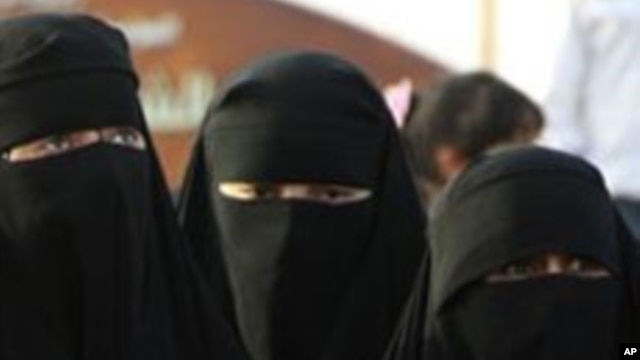
FILE - Saudi women attend the traditional Arda dance, or War dance, during the Janadriyah Festival of Heritage and Culture on the outskirts of the Riyadh, Saudi Arabia.
International human groups are criticizing Saudi Arabia as the country goes before a United Nations review Monday, saying that the country has not implemented necessary reforms.
Amnesty International and Human Rights Watch both say Saudi Arabia has not carried out reforms recommended by the U.N. Human Rights Council during its last review, in 2009.
The council periodically examines each country's rights record, presenting questions from the international community and allowing governments to present efforts they have made.
Amnesty International and Human Rights Watch say Saudi Arabia has a system that discriminates against women both through law and in practice, exposes migrant workers to abuse, puts activists and supporters of political reform at risk of arbitrary detention and unfair trials, and features torture and ill-treatment of detainees.
Most of those concerns were identified in the 2009 review.
Questions submitted to Saudi Arabia ahead of Monday's meeting ask the government to address the prospects for women to gain greater autonomy and to assess the role of human rights workers in the country amid arrests and the closure of some groups.
They also ask if the country plans to consider abolishing the death penalty, what steps it plans to take to ensure people receive due process, and how it will ensure that migrant workers can report abuses.
Saudi Arabia's pre-meeting report highlights efforts the country has made to reform its judicial system by training more judges, establishing a human rights unit to attend trials and inspect prisons, listening to complaints of prisoner abuses, and allowing alternative sentences.
The report also says punishments for certain offenses, including those involving the death penalty, cannot be altered because they are rooted in the sharia tradition of law that governs the country.
It also says women are guaranteed equality and have been given expanded opportunities to hold elected office, participate in the country's Shura Council and have access to jobs.
The U.N. will release its final report on Monday's review in March. |
|
